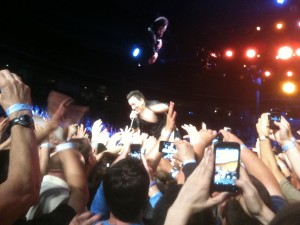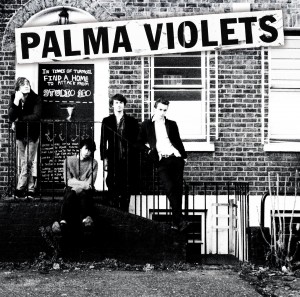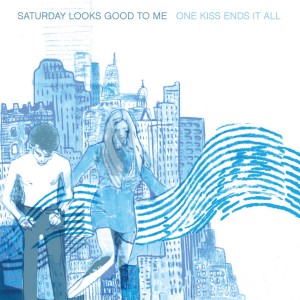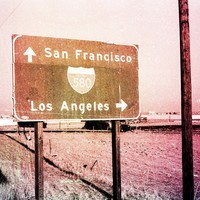
There’s a long history of American storytelling, stretching back through folk heroes like Woody Guthrie to authors like Steinbeck and the people who moved out to homesteads on the frontier, braving the cold and the wild all in the hopes of finding something better.
It’s a noble legacy, but also a deadly one. Grand dreams sustain us in our hardest times – it’s what makes us want to believe, need to believe in the myth of Tom Joad – but those same dreams also contribute to the bust and boom cycles that brought on the Depression in the first place. And that long line of Okies trudging across America desperately searching for a job or a full meal – if you trace it back far enough, you’ll find yourself in the midst of one of Jay Gatsby’s famous parties.
That’s what Springsteen captures: the enigma, the longing, in all of its passion and full belief. And it’s what rescues the bombast of “Born to Run” or “Thunder Road.” These songs explode with a fervor that lays bare all that is buried in their subjects. Youth, wild abandon, a belief that true meaning can be found on just the other side of the hill. And a secret terror that all those dreams may have already passed you by.
All of which is to say: there is genuine magic here, if only we remind ourselves to hear it.
Mandatory disclaimer: these are simply my favorites. I make no claim about the objective list of their ‘best’ songs. I can only tell you what I like.
10. Land of Hope and Dreams (Wrecking Ball)
It’s a tour de force. You get basically the entire Springsteen mythos here: trains, lost souls, community, redemption, and a killer saxophone solo from the Big Man (one of his very last, sadly). The fact that the mode of reference is almost anachronistic these days (who catches a train to their salvation in 2013?) is actually part of the point. It’s a call to remember what is great in our past, not to say that we can go back, but to caution us about what it means to move forward.
9. Youngstown (Live in New York City)
The acoustic version of this song is fine. But it doesn’t really convey the feel of the place. Here, with dirty guitars and an ominous, looming sense of menace, is the real Youngstown. The history just seeps out of it like a thick sap. And the anger is evident in his snarl.
If “Land of Hope and Dreams” is the positive expression of this idea—that there will always be room in this great country for those willing to strive for it—“Youngstown” tells the other side of the story.
And again, of course this is nostalgia. It’s not meant as a political treatise on the political economy of coal, nor is it a demand for the restoration of a city that is gone forever. It’s just the expression of a palpable frustration. And it’s a call for us to exercise our memory, to recognize those who have been left behind in this brave new world. It’s all too easy to just cast them aside as the detritus of progress. But everything we are now depends on the sweat and the blood and the pain of those who came before.
8. Darkness on the Edge of Town (Darkness on the Edge of Town)
The vocals are shredded. The soul is shredded. He’s on that hill because what else can you do? In all the things that we want, in all the things that we can’t have, there’s a great darkness. For those who find themselves living in the midst of that darkness, somehow everything obtains a new clarity.
It’s not a bad place. But it’s not a good place either. It’s the place where concepts like good and bad lose their hold on us. There is only the pure wanting, the desire, the need for something. We don’t know what it is, but it drives us forward. The darkness is the place where we look deep into ourselves and see the blank spaces. It’s where secrets come to life and are burned away in a fire.
It’s where we see our true selves.
7. Dancing in the Dark (Born in the USA)
I know this one divides opinion a bit among serious Springsteen fans. But I care not one whit. Of course it’s a product of its time, with the synths and the straightforward pop sensibility. And it was written explicitly for the purpose of generating a strong single, which suggests a degree of crass commercialism. To that I say: so what? It’s a beautifully crafted song, one of the prettiest melodies he has ever written, and a fine vocal performance. And the background for its creation—Jon Landau’s insistence that Born in the USA needed a standout single and Bruce’s frustration with the demand—actually just makes me like it more. It’s a window into his own creative process as much as it is a story about someone else.
6. Born to Run (Born to Run)
He set out to write the greatest rock and roll song of all-time. And you’d have to admit that he just about hit the mark. It starts big and only gets bigger. It famously took literally months to produce, and you can hear it in the depth of the sound. It sounds huge, impossibly dense, and yet somehow carefree.
This song, as much as any Springsteen track, invites misunderstandings. You can read it as an overly simplistic glorification of the misfits. And yes, it does seem to suggest that any problem in the world can be beat if you just get yourself out on the road.
But, if you dig in just a little bit, you’ll discover there’s a lot more going on here. Lines like “Together Wendy we’ll live with the sadness / I’ll love you with all the madness in my soul” suggest that the redemption promised here is temporary at best. You dream crazy dreams, you love like there’s no tomorrow, you drive away into the night—not because you think this will make the sadness go away, but just because if you don’t keep striving the sadness will overwhelm you.
There’s no perfect life waiting around the corner for them. They will find pain and sorrow. But in the face of that pain the best they can hope to do is to refuse to give up.
5. Badlands (Darkness on the Edge of Town)
If “Born to Run” is the greatest rock song ever made, this is somehow something even better. To me, these two songs mark something wonderful in his artistic evolution. Born to Run is a triumph. It’s the sort of album that sings with the voice of Homer. It paints in huge strokes, and in highly stylized forms. And it’s a testament to Springsteen that he never tried to make something exactly like it again. The follow-up, Darkness on the Edge of Town, is much darker, much more narrowly drawn. And so this is what happens when you channel all that passion and energy and the pure forces of nature through the parched lands of our national spirit.
“Born to Run” is rock and roll for the dreamer in all of us. It tells us that we need to dream in order to survive. And, if we dream hard enough, we just might “get out while we’re young.” “Badlands” is rock and roll for those who have come to realize that there’s something beyond the dream. And it’s simply the “notion deep inside, that it ain’t no sin to be glad you’re alive.” When you live in a world that beats you down mercilessly, you might come to believe that dreaming is the only escape. But here, Bruce is telling us, in the Badlands, we start to realize that escape is the wrong way of thinking about it. We don’t need to escape. We just need to “go out tonight and find out what we’ve got.”
When I’ve seen Bruce live, this song was without a doubt the most exuberant. And I think it’s because “Badlands” is fundamentally about coming together, about shared belief in something greater, about the invitation to live well in the world we have made for ourselves. “Born to Run,” for all its grandeur and wonder, is fundamentally about dissatisfaction, where “Badlands” is about the simple honor of a life well-lived. It’s not a ‘happy’ song, but it is a joyous one.
4. The River (The River)
In some ways, this is the companion piece to “Born to Run.” Here the subject is what happens to people once they realize that their youthful dreams are long gone, but nothing is there to replace them. I’m not sure there is a line in the history of rock and roll that is more heartfelt and deathly-sad than the bridge in this song:
But I remember us riding in my brother’s car
Her body tan and wet down at the reservoir
At night on them banks I’d lie awake
And pull her close just to feel each breath she’d take
Now those memories come back to haunt me
They haunt me like a curse
Is a dream a lie if it don’t come true
Or is it something worse?
It just hurts so much, to know what it felt like to be happy, and to know that it will only ever be a cold and lifeless memory. To look at someone and see in them the person you used to be, that you still wish you could be. How can we bear the pain? How could you not grow to hate that person who represents the iron cage that has been dropped around you. Their version presence mocks you. And yet, would you really wish to not have those memories? Would that make it any better?
3. My City of Ruins (The Rising)
He wrote it about a neighborhood falling apart but I’m not sure it would be possible to write a better song about 9/11. Possibly the most emotional musical moment of the decade is when he asks: “Tell me how do I begin again? My city’s in ruins…”
That it wasn’t written about 9/11 almost makes it better, since the tragedy of 9/11 has always been the way it inflicted itself on us in the places that felt the most safe, the most personal. It’s about the loss of a specific home, but that allows it to stand in for the loss of home on a much grander scale. It could be about Asbury Park; it could be about Ground Zero; it could be about New Orleans after Katrina; it could be about Flint after the decline of the auto industry. No matter what it means for you, it’s about the need to rise up out of our sorrow and pain. Out of the ashes, we will rise again.
2. Backstreets (Born to Run)
Just listen to the poetry. I don’t know what a “soft infested summer” is, precisely, but I know exactly what he means nonetheless. And the tiny details, unexplained, allow the story to emerge in its own way. We get specific names (Stockon’s Wing, the Duke Street Kings) without any clarification. It’s a perfect case of simply showing rather than telling. We don’t need to know what those things are – we just need to know what it felt like.
And the ambiguity doesn’t end there. There’s a core question at the very heart of the song. What precisely is the relationship being discussed? The most straightforward reading is simply one of young love. But there’s nothing here that actually necessitates romantic interest. It could also be simply a story about growing up, the transformative feeling of realizing what it means to have a friend with whom you can share everything. And, of course, there’s the ambiguity in the name. It’s simplest to read Terry as a woman, but there’s no reason it couldn’t be a man—which would add another layer to the explanation for them “hiding on the backstreets.”
After two verses of set-up, the inevitable breakdown hits just about as hard as any piece of music I have ever heard. Even on an album well known for bombastic moments, there really isn’t any other that comes close to the epic feel of this verse. Bruce singing “blame it on the lies that killed us, blame it on the truth that ran us down” is the sound of a heart being torn to shreds right in front of us. It’s almost impossibly intimate and yet also feels universal. And again, we don’t really get the details. This isn’t a blow-by-blow account of what went wrong. It’s about the feeling. The story is told just beyond the actual events. What lie that killed them? What truth that ran them down? Who is the guy? We never find out because this isn’t a story driven by the plot. It’s a painting, or a series of photographs, meant to capture the flickering moments of pain.
This song would be a complete and perfect work of art if it only contained those opening three verses. But, because Bruce is Bruce, he gives us the coda to tie it all together. Laying in the dark, thinking about what has passed. And his memory of what it was all about:
Remember all the movies, Terry, we’d go see
Trying to learn how to walk like the heroes we thought we had to be
Well after all this time to find we’re just like all the rest
Stranded in the park and forced to confess
To realize that you are only a character in your own story…it could lead you to doubt whether there really are heroes in this mean old world. But, and here is the essential and wonderful ambiguity of the song, we never really find out where it all goes. If it’s all a matter of “hiding on the backstreets” what precisely is he hiding from? Is that part of the magic of the backstreets, that they are always there for us as a sort of refuge? Or is hiding the problem: that no matter what new troubles we face, we can always run away from them to hide on the backstreets? Or both? We don’t need an answer: we just need to keep asking.
1. Thunder Road (Born to Run)
It’s an entire movie in four minutes and fifty seconds. And not just any movie, this is the Casablanca of rock and roll. All the tropes, all the references, all the things that you’ve heard in hundreds of songs since then…this is where it all comes from. If it sounds tired or worn down, it’s only because you’ve replaced the real thing in your imagination with the imitation.
And if this is where the tropes begin, if this is the center of the Springsteen universe, it’s worth pondering for a little bit what precisely they mean.
My theory is that the Springsteen tropes aren’t meant to be understood in isolation. They work together, over the course of decades, to build up an entire universe. The guy who shows up at Mary’s door with the promise of redemption inhabits the same world as the Vietnam vet who lost his brother at Khe Sanh. And they both stand in as archetypes for the guy who is trying to write his novel and just can’t make it click. The fellow in a union coat standing in the county courthouse with his pregnant girlfriend may have been friends with the singer of “Thunder Road.” And they both probably drive their cars around at night feeling lost in “Racing in the Street.”
Cars mean freedom, but they also represent wasted years spent on ephemera. The train is the universal metaphor—it takes us into the land beyond, brings us all together, forms the connective tissue of our greater psyche. And these vehicles scream to us of salvation and redemption. But the broader point, made clear only from the distance as the whole narrative blends together, is that redemption was never in the thing. Redemption is the thing, and it comes from our capacity to believe.
Here, he sings “All the redemption I can offer, girl, is beneath this dirty hood,” and if you want to be ungenerous you would interpret that as a belief that the car is some simplistic metaphor for freedom. That the American Dream is found in some fuel-injected engine. But that’s not the point at all. No, it’s the act of offering that matters. The substance of the offer is what gives it a narrative hook. But if you treat the hook as the thing itself, you are doomed.
Of course we can’t help but feel just a tiny bit cynical. As the credits roll and the kids drive away into the sunset, we know deep down that bad times will come to them, and probably sooner rather than later. But that doesn’t matter for the song because he’s not asking us to believe in the objective truth. He asking us to believe that the characters in the story really believe. And to remind us of when we believed, too.
The kid sits there with hand outstretched, and asks her to share his dream. But the dream is not the magic of the highway. The dream is the dreaming itself. The finding out, the testing, the endless faith in the possibility that there must be something more. And if we can’t find it here, then we just have to keep looking.
Honorable mentions:
11. Loose Ends (Tracks)
12. American Land (The Seeger Sessions)
13. Girls in Their Summer Clothes (Magic)
14. You’re Missing (The Rising)
15. Born in the USA (Born in the USA)
16. Racing in the Street (Darkness on the Edge of Town)
17. The Promised Land (Darkness on the Edge of Town)
18. Jungleland (Born to Run)
19. Atlantic City (Nebraska)
20. Rosalita (Come Out Tonight) (The Wild, The Innocent, and The E Street Shuffle)
More on Springsteen:
Springsteen and the Power of Earnestness
Thinking about Springsteen in the context of The Gaslight Anthem





